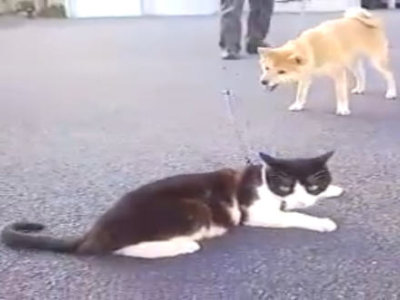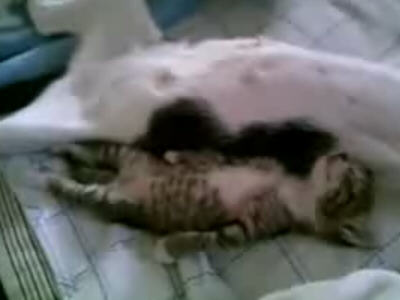Cats, unlike other animals, tend to avoid 'working for food'

Many people may think, 'If you can get food without working, it's better', but in many animals such as dogs, bears, pigeons, pigs, goats, mice, and monkeys, 'feed without working.' I prefer to work and get food rather than getting food. ' However, it has been reported that, unlike many animals, cats avoid working to get food and prefer food that they can get without working.
Domestic cats (Felis catus) prefer freely available food over food that requires effort | SpringerLink
Cats Prefer to Get Free Meals Rather Than Work for Them | UC Davis
https://www.ucdavis.edu/news/cats-prefer-get-free-meals-rather-work-them
Cute Experiment Reveals How Your Cat Probably Wants Its Meals Served
https://www.sciencealert.com/cats-prefer-meals-that-require-the-least-amount-of-effort
The tendency of animals to prefer to work and feed rather than not work is called 'Contrafree loading'. For example, if you give a mouse that teaches that 'pushing the lever will give food' and 'feeding on the tray' and 'feeding when pushing the lever', the lever will be more than the food on the tray. It is said that there is a strong tendency to eat the food that comes out by pressing. This tendency is seen not only in many animals but also in humans, and preschool toddlers prefer to push the lever in the same experiment as mice.
However, a 1971 study found that cats, unlike other animals, did not behave in reverse and tended to prefer food on trays. A research team at the University of California, Davis said, 'Isn't the indoor environment and the activity of cats affecting whether they like to work when getting food?' I did it.
In the experiment, 17 cats were given 'food on a tray' and 'food that can be obtained by solving food puzzles ' in an indoor environment, and which cat preferred was measured. The food puzzle is transparent and it can be confirmed that the cat has food inside, and some cats have also solved the food puzzle before. The research team also attached sensors to cats to measure activity and analyzed how active each cat was.
You can see the state of the experiment conducted by the research team by watching the following movie.
Cats prefer to not work for their meals --YouTube
The woman in the foreground is holding a black cat, and in front of the cat's line of sight are a 'food puzzle with food (left)' and a 'tray with food (right)'.
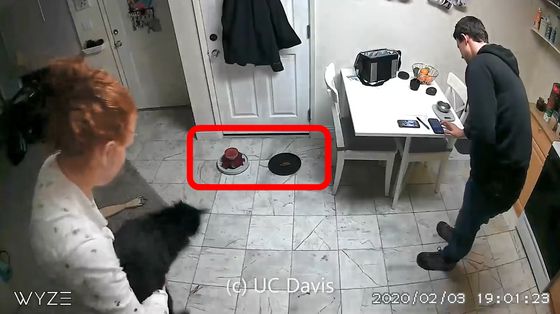
When the woman puts the cat down on the floor, the cat slowly walks towards the food ...
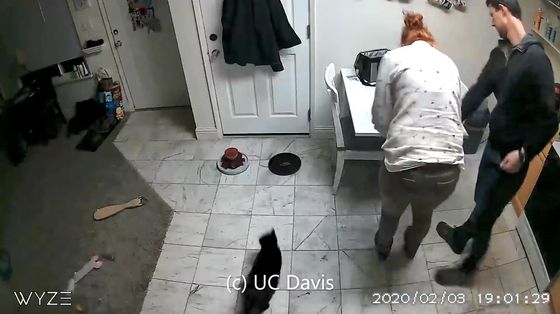
I started eating food on the tray without looking at the food puzzles.
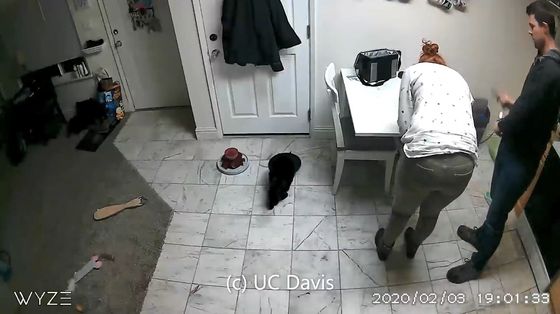
In an experiment with another cat, the cat turned his gaze toward the food puzzle for a moment ...
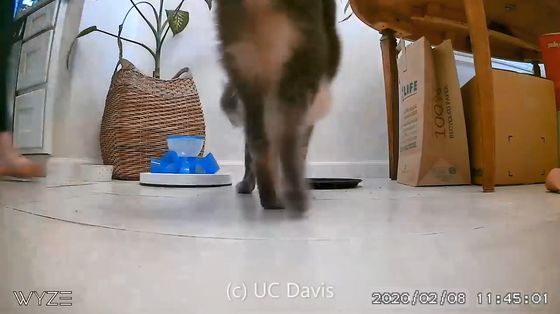
In the end, I was absorbed in the food on the tray.
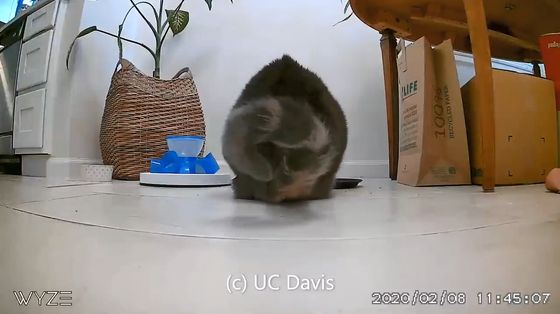
At first, some cats stared at the food puzzle and made me think that they would try the puzzle ...
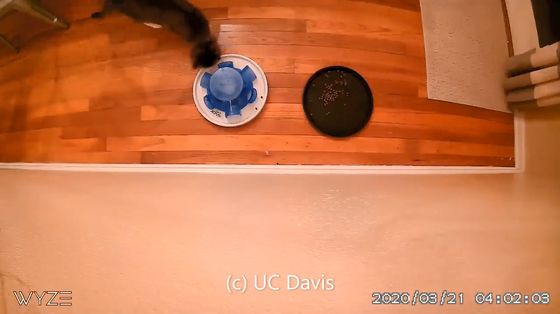
When I noticed that there was food next to it, I easily left the puzzle.
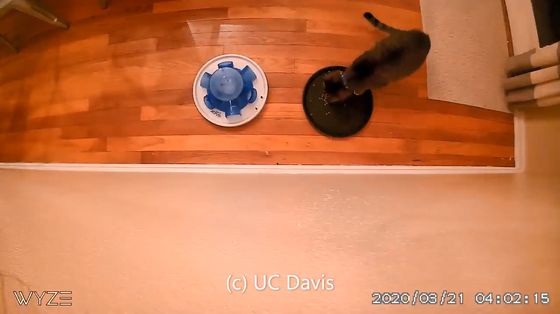
From this experiment, it was confirmed that the cat ate more food on the tray than the food obtained in the food puzzle. In the experiment, each cat was able to eat the food puzzle and food on the tray for 30 minutes, but eight cats did not even touch the food puzzle. Also, the activity of the cats is not related to the willingness to challenge the food puzzle, and the most active cats also liked the food on the tray.
Dr. Miquel Delgado , the lead author of the paper, said, 'It wasn't that cats had never used food puzzles, but they ate more food from the tray and spent more time near the tray. 'Spent.' 'There are overall studies showing that most species, including birds, rodents, wolves, primates, and giraffes, prefer to work for food. Surprisingly, all these species Only cats did not show a strong tendency to reverse and act. '
As for why cats do not behave in reverse, the research team found that domestication of cats reduced their willingness to explore and hunt for food in an indoor environment where food was readily available. Pointed out that there is a possibility. In addition, cats are the type of predators that ambush their prey from the beginning, and it seems that it may also be affected by the fact that they are not active predators to get food.
The results of this study only show a tendency to prefer the food on the tray to the food in the food puzzle, and it does not mean that 'cats dislike food puzzles'. A 2016 study showed that food puzzles help cats lose weight and reduce anxiety.
Related Posts:




